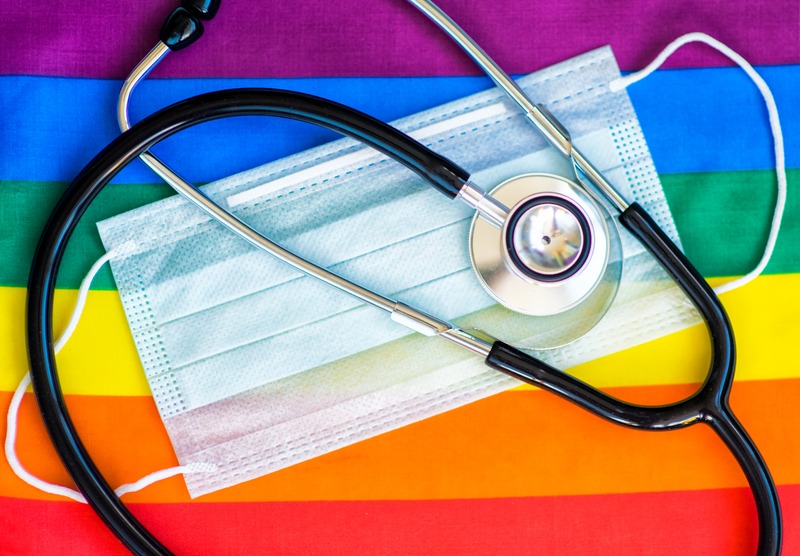As this year’s LGBTQ+ History Month’s theme is #UnderTheScope, for the third week of LGBTQ+ History Month, we would like to focus on celebrating the contributions of some key LGBTQ+ figures to the field of medicine.
Sophia Jex-Blake (1840-1912)
Sophia was a leading campaigner for allowing women to study medicine. After studying at the University of Edinburgh and qualifying in 1879, she became the first female doctor in Scotland and the University of Edinburgh became the first university in Britain to admit women. She is also believed to have been a in a same sex relationship with Dr Margaret Todd, who wrote an extensive biography of Sophia’s life, following her death in 1912.
Louisa Martindale (1872-1966)
Louisa was an English physician, surgeon and writer. In 1906 she set up her medical practice in Brighton and became the first woman GP. With a group of other Brighton feminists she develops the New Sussex Hospital for Women, where she was a senior surgeon and physician. She later became a specialist in the early treatment of cervical cancer and was awarded a CBE in 1931. For three decades, Louisa lived with the love of her life Ismay FitzGerald, for whom she wrote of her love for in her autobiography: A Woman Surgeon, published in 1951.
Michael Dillon (1915-1962)
Michael was the first trans man known to have undergone gender confirmation surgery. While in transition, Dillon wrote the first medical works on the trans identity and gender affirming treatments. Michael laid out arguments for the medical treatment of those experiencing what would later be called “gender incongruence” and discussed the failings of the purely psychotherapeutic treatment endured by those striving to align body with mind, which was available at the time.
Oliver Sacks (1933-2015)
Oliver was a British neurologist and writer who wrote popular, critically acclaimed books about neurology. Oliver wrote numerous books on the subject of neurology in an accessible format that was understandable and enjoyable by all, with the New York Times calling him a “poet laureate of contemporary medicine,” and “one of the great clinical writers of the 20th century”. His personal life was kept private, until the publication of his autobiography, On the Move (2015). It told of his experiences of being gay, as well as his 35 years of celibacy until, he met his partner in 2008, the writer Bill Hayes. They were together until Sack’s death in 2015.
Kevin Fenton (1966-)
Kevin is a is a senior public health expert and infectious disease epidemiologist, with a distinguished profile of public health leadership roles on both sides of the Atlantic. Kevin was born in Glasgow but grew up in Jamaica. Working as a government doctor in Lucea, Jamaica led him to concentrate on public health. After studying at London School of Hygiene & Tropical Medicine and University College London, Fenton became a senior lecturer on HIV epidemiology and consultant epidemiologist at the NHS’s Communicable Disease Surveillance Centre. In 2002, he became director of the centre’s HIV and Sexually Transmitted Infections Department.
In 2005, Fenton then moved to the US to work for the national public health agency, the CDC. There, he initially as director of the National Syphilis Elimination Effort, then director of the National Centre for HIV/AIDS, Viral Hepatitis, STD, and TB Prevention.
Professor Fenton has since returned to the UK, becoming the Regional Director for London in the Office for Health Improvement and Disparities (OHID). Within this role, he acts as public health advisor to the Mayor of London and the Greater London Authority.
In December 2021, Professor Fenton was appointed Chief Advisor on HIV to the Government, as well as Chair of the HIV Action Plan Implementation Steering Group to oversee the delivery new HIV strategies for England. Professor Fenton has also been elected to be the next President of the UK Faculty of Public Health, being due to take up the position in June 2022.
Fenton was appointed Commander of the Order of the British Empire (CBE) in the 2022 New Year Honours for services to public health.
Read more about Kevin and his thoughts on the NHS and the LGBTQ+ community.


